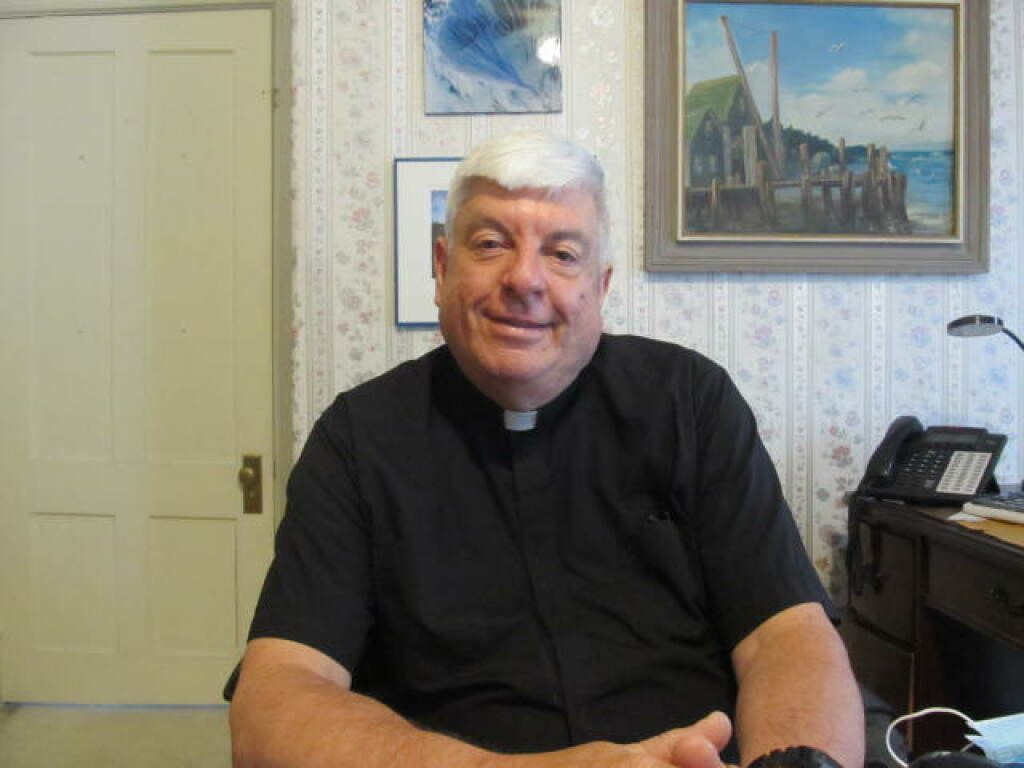 This man welcomes sinners and eats with them
This man welcomes sinners and eats with them
The story is told of a man attending a crowded church service who refused to remove his hat when asked to do so by ushers. The preacher was perturbed, too, and waited for the man after the service. He told the man that the church was quite happy to have him as a guest, and invited him to join the church, but he explained the traditional decorum regarding men’s hats and said, “I hope you will conform to the practice in the future.”
“Thank you,” said the man. “And thank you for taking time to talk to me. It is good of you to invite me to join the congregation. In fact, I joined it three years ago and have been coming regularly ever since, but today is the first time that anyone paid attention to me.
“After being an unknown for three years, today, by simply keeping my hat, I have had the pleasure of talking with the ushers. And now I have had a conversation with you, who always appeared too busy to talk to me before.”
The author of the article asked a couple of pointed questions: What do you do to make strangers welcome?
In my own experience, during the time before I was of school age, I used to accompany my mother as she did errands and visited people in our community. In particular, I remember visiting some poor widows who were unable to read and write. If they had received a letter from Poland, my mother would read it to the widow, and the widow would dictate a response. But what I remember most fondly is that, as soon as we arrived, the widow would excuse herself, go out, and then return with a big bag of soda and cookies and candy. Those widows made me feel welcome, and they certainly were not too busy to show hospitality.
I have recently been studying a couple of scholarly commentaries on the book of Revelation, which happens to be one of the more difficult books in the bible to figure out.
In one beautiful passage Jesus is quoted as saying, “Behold, I stand at the door and knock. If anyone hears my voice and opens the door, I will enter his house and dine with him, and he with me” (see Revelation 3:14-22).
The author of the study goes on to point out that in the Middle East sharing a meal “indicates a relationship of trust and friendship…To dine with Christ is to be united to him in his covenant and to know his love; it recalls our table fellowship with him in the Eucharist” (Peter Williamson, p. 95).
We have table fellowship with Jesus in the Eucharist! We are thereby united with him and come to know his intimate love. And as we celebrate the feast of Jesus’ Body and Blood in the Eucharist today, I want to direct our attention to the Last Supper, the final meal Jesus had with his disciples before his crucifixion, the final meal that is now celebrated in memory of Jesus’ incredible love—love even unto death.
I want to consider the extraordinary hospitality that is shown by Jesus at that very special Last Supper. Jesus celebrated communion with Peter, even though he knew Peter was about to deny even knowing him three times. Jesus celebrated communion with Matthew, even though the vast majority of the people considered Matthew a traitor because he had collected taxes for the Romans. Jesus celebrated communion with Thomas, even though Thomas would later have doubts and demand that Jesus give physical proof of his resurrection. Jesus celebrated communion with James and John, the two brothers who had been arguing for positions of honor at Jesus’ right and left when he entered his kingdom.
Throughout his public ministry, Jesus was repeatedly criticized for the type of hospitality he offered: “This man welcomes sinners and eats with them.” The scribes and Pharisees had their rules of proper table fellowship, and so in their eyes Jesus was repeatedly breaking the rules. By inviting such people to table fellowship, Jesus was declaring that he wanted a relationship with them, a relationship of trust and friendship.
Pope Francis has emphasized this revolutionary aspect of what Jesus intended: “The Eucharist, although it is the fullness of sacramental life, is not a prize for the perfect but a powerful medicine and nourishment for the weak.”
The man in the story who wore the hat to church felt unwelcome since no one seemed to make genuine room for him. I hope that doesn’t happen here. Of course, we are only human, and we can fail despite our best efforts. But Jesus wants us to help him build relationships, to welcome people that seem to be less than perfect, all the while remembering that we are less than perfect ourselves. If we were perfect, we wouldn’t really need Jesus, would we? But at it is, Jesus still welcomes sinners and eats with them—with us. We should do the same.
You might also like
Father's Homilies




